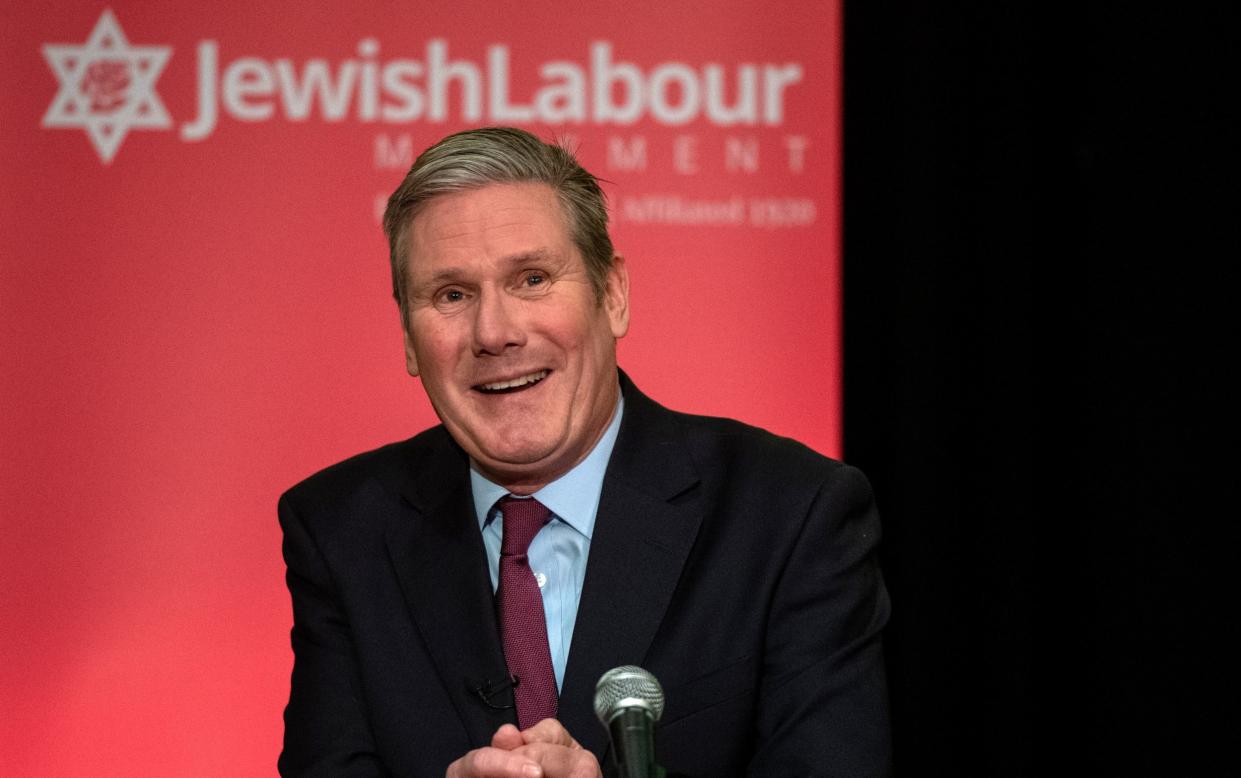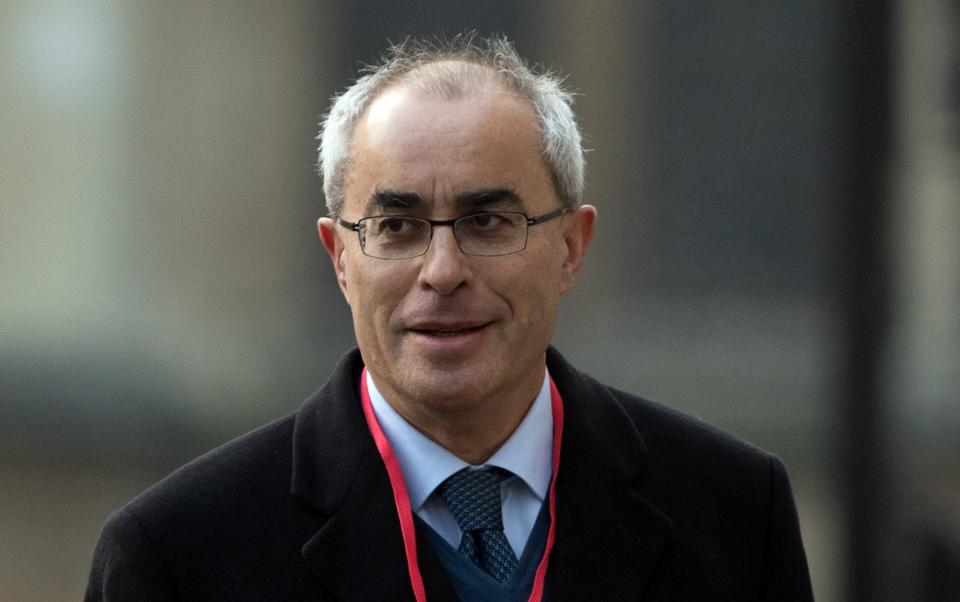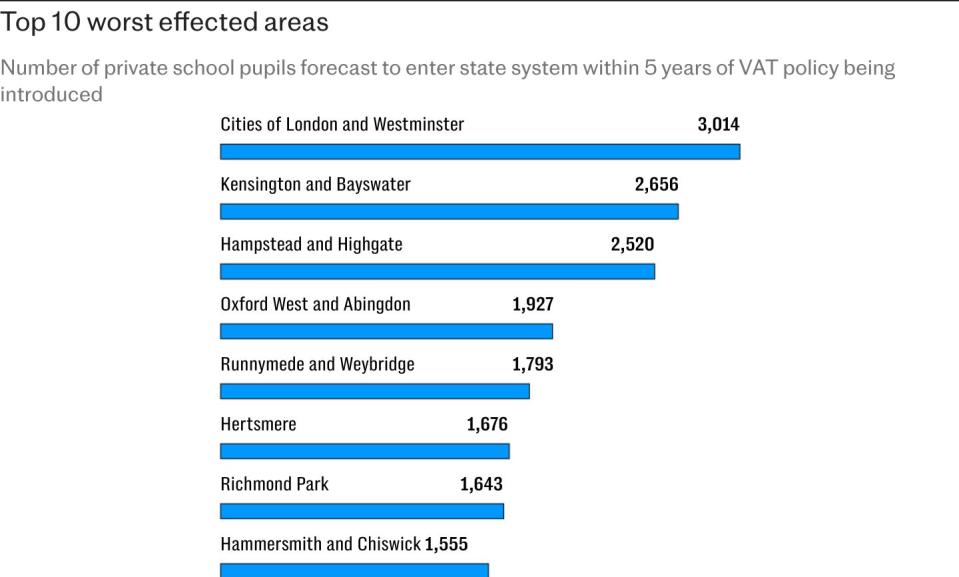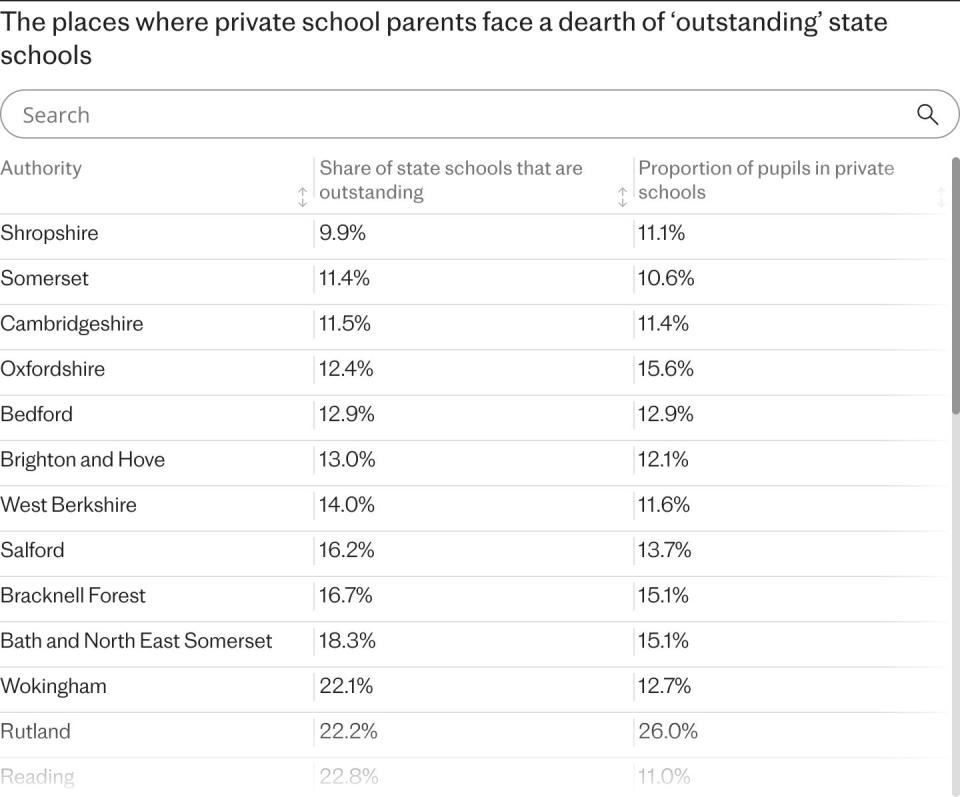Labour’s tax raid could ‘decimate’ Jewish schools

- Oops!Something went wrong.Please try again later.
- Oops!Something went wrong.Please try again later.
Thousands of Jewish students will have “nowhere to go” if the Government goes ahead with plans to tax private education, a charity has warned.
A charity that supports Jewish independent schools said Sir Keir Starmer’s VAT raid and plans to remove business rate exemptions would force many to close.
Separately, lawyers have said that Labour’s private education tax plans risk illegally discriminating against independent faith schools.
Lord Pannick, a leading human rights lawyer, told The Telegraph that making private schools subject to VAT was likely to breach the European Convention on Human Rights (ECHR).

Many Jewish independent schools charge fees on a voluntary basis – often starting from as low as £1,000 per term on a “pay what you can” basis and some charge no fees at all.
Of the 140 Jewish schools across the UK, 60pc hold independent status, equating to around 22,000 students.
Being independent allows faith schools to decide which students they let in and prevents local authorities from allocating extra places to non-religious students.
It also gives them more autonomy over their curriculums.
The Government has said it will remove independent schools’ VAT and business rate exemptions to fund the state sector with an extra £1.5bn.
Raisel Freedman, of Partnership for Jewish Schools (Pajes), said: “This would force [Jewish] parents with more than a couple of children onto the poverty line and force schools that don’t currently charge fees to shut down.
“Getting rid of the business rates exemption would decimate [Jewish] schools.
“That’s a real worry, because a lot of the money is currently coming from community funding.
“You will have 22,000 Jewish students with nowhere to go.”

Ms Freedman said her worry was that while there were ways for Jewish families to educate their children at home in line with their faith, there were a lot of unregistered providers out there which “skirted on the edges” of being education institutions.
The Department for Education has admitted there is currently “insufficient oversight” over unregistered providers, which “has led to children and young people becoming less visible across the system, putting their safety and the quality of their education at risk”.
Pajes said spaces in state-run Jewish schools had all but disappeared since the Hamas attacks on Israel on October 7 which was followed by an “influx” of teachers and students re-joining the Jewish school community.
Ms Freedman added: “Any spaces we did have have already been filled due to safety concerns.”
The Department for Education says there are just under 19,000 pupils across the Jewish independent school sector, but Pajes says the government database misses out some schools – taking the number closer to 22,000.
Tax could ‘discriminate’ against Jewish pupils
In a legal opinion seen by The Telegraph, lawyers have said schools have grounds to challenge the Government’s policies on the basis of discrimination.
The guidance has been produced by Sharpe Pritchard, a law firm, and Tom Cross, the barrister who successfully defended head teacher Katharine Birbalsingh’s ban on prayer rituals at Michaela Community School.
The guidance says the “most promising argument” would be that legislation Labour would likely use to implement the policy would be “discriminatory” and “contrary” to the anti-discrimination provisions in the ECHR.
It reads: “It may be able to be shown that pupils of faith, or perhaps of a particular faith, are more likely to require independent schooling than those of no faith.
“Thus the legislation disadvantages pupils of faith as compared with those not of faith because, to the extent it will cause displacement, that will hit those of faith harder than those not of faith.
“They will be less likely to have an education in accordance with or during which they can manifest their faith.
“Jewish schools may be a good example.
“If such a disadvantage could be shown, it will be for the Government to show justification.”
George McLellan, a partner at Sharpe Pritchard, said there was also “a recognised need” for Jewish schools to have additional security arrangements in place to protect children and staff.
He added: “Children who are priced out of such schools as a consequence of increases to fees may not be able to find placements in schools where their security needs are met – whether these are publicly funded Jewish schools or other schools.
“Faith schools may also offer children a different term timetable accommodating for different religious holidays, religious education and support, and different food to accommodate religious requirements.
“While there are publicly funded schools which support some faith communities, many of them are already at their enrollment limits.”

Other examples included children with special educational needs and children in countryside areas solely reliant on boarding schools unlike city-based families with more schooling options.
Mr Cross said if schools managed to get their hands on a “declaration of incompatibility” from the court then this would put “enormous political pressure” on a future government to reconsider such a policy.
He said: “In most cases, governments have responded to these by making their policies compatible. The famous case where they didn’t was prisoner voting.
“The court would have to look at the schools’ arguments carefully, and this scrutiny would put pressure on the finances of the policies – are they worth the disadvantage children will suffer from by being displaced?”
The Government has not yet confirmed whether or not it will consult on its VAT and business rate policy changes for private schools.
Lord Pannick told The Telegraph: “It would be strongly arguable that for a new government to impose VAT on independent schools would breach the right to education.
“That is because all other educational services will remain exempt from VAT and the charging of VAT on independent schools alone is designed to impede private education, and will have that effect.”
The Government was approached for comment.

